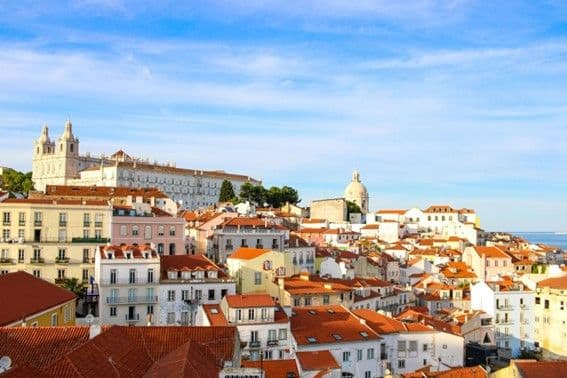Foreign Investment in Portuguese Real Estate Declines to Four-Year Low
The Portuguese National Statistics Institute (INE) has reported a notable decline in property acquisitions by foreign buyers, with figures for the second quarter of 2025 reaching their lowest level since 2021. This development marks a significant shift in a market that has been heavily influenced by international capital over the past decade. The data, released as part of the Housing Price Index (IPHab), indicates that buyers with a tax domicile outside of Portugal were responsible for just 4.9% of the total housing transactions, a considerable drop from 6.6% in the same period of the previous year.
The statistical announcement from the INE provides a detailed quantitative analysis of this trend. In absolute numbers, foreign buyers acquired 2,107 properties between April and June, a year-on-year decrease of 14.5%. This represents the fourth consecutive quarter in which the proportional weight of foreign buyers has fallen. The methodology used by the INE involves compiling data from official property transaction records, ensuring a high degree of accuracy in its reporting on the housing market dynamics across the country.
The data further breaks down the origin of these international buyers. Transactions involving purchasers from within the European Union totaled 1,112, accounting for 2.6% of all sales. Buyers from countries outside the EU made up the remaining 995 transactions, representing a 2.3% share. This granular detail shows that the decline is broad-based, affecting investment from both EU and non-EU nationals. In contrast, the domestic market showed remarkable strength, with buyers residing in Portugal completing 40,782 transactions, an increase of 17.7% year-on-year.
Need Expert Guidance?
Get personalized insights from verified real estate professionals, lawyers, architects, and more.
Despite the slowdown in foreign acquisitions, the overall Portuguese property market demonstrated continued growth. A total of 42,889 homes were sold in the second quarter, a 15.5% increase compared to the same period in 2024 and a 3.7% rise from the previous quarter. In terms of value, these transactions amounted to €10.27 billion, a substantial 30.4% increase year-on-year. This suggests that while the composition of buyers is changing, the market's overall value continues to appreciate, driven by strong domestic demand and rising property prices.
Geographically, the North of Portugal has emerged as the most active region, accounting for 12,955 transactions or 30.2% of the national total. The Greater Lisbon area, traditionally a hotspot for foreign investors, followed with 8,189 sales, making up 19.1% of the market. The Setúbal Peninsula also saw a marginal increase in its market share, now representing 9.6% of total sales. This regional data indicates a robust and geographically diverse property market, even as the influence of foreign buyers wanes.
Industry experts suggest this trend may be linked to recent government policy changes. Ricardo Sousa, CEO of a leading real estate agency in Lisbon, commented, "The termination of the Golden Visa for real estate and modifications to the NHR tax regime have undoubtedly had an impact. We are seeing a market that is rebalancing towards domestic demand." The government has made no official comment on these specific figures, but the policy shifts were publicly aimed at addressing housing affordability for local residents. This data may be seen by policymakers as an early indicator of success in that regard. The INE will continue to monitor these trends, with the next quarterly report anticipated in December, which will be crucial for confirming if this is a sustained market realignment. Get expert guidance for international property buyers at realestate-lisbon.com.






